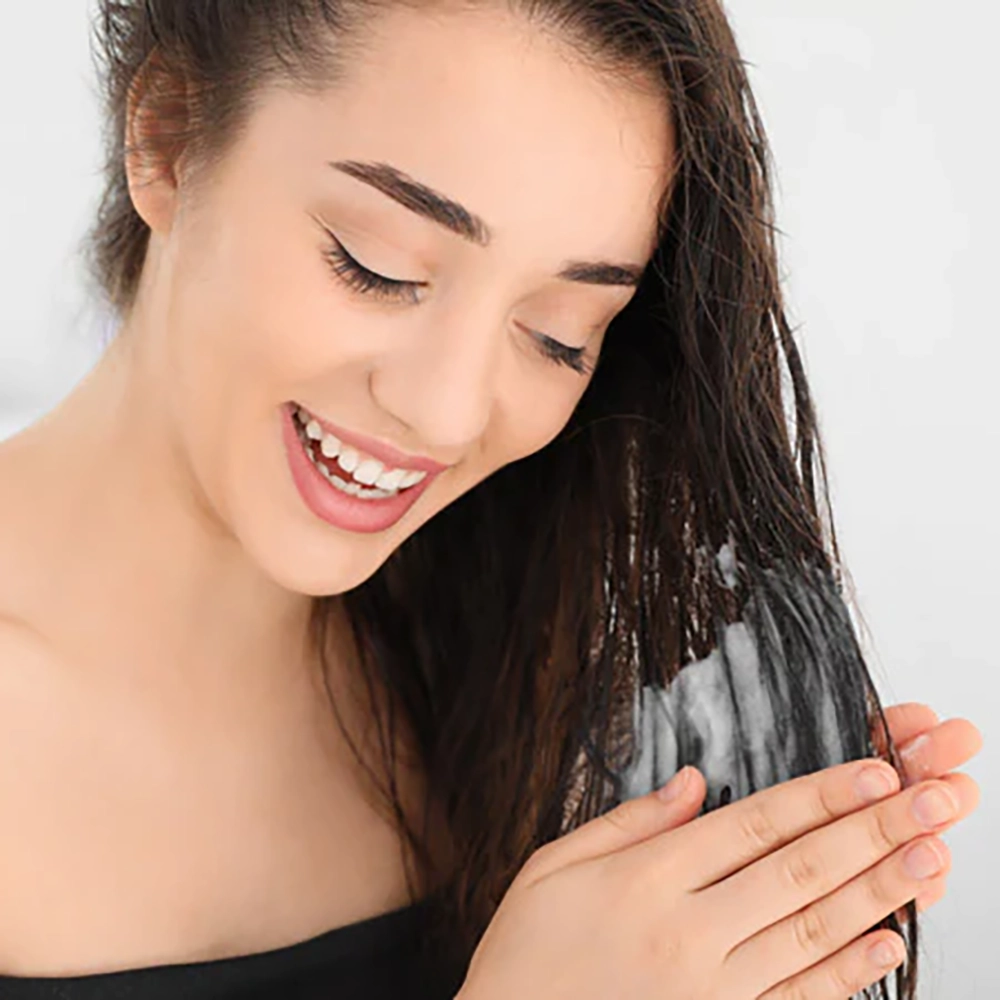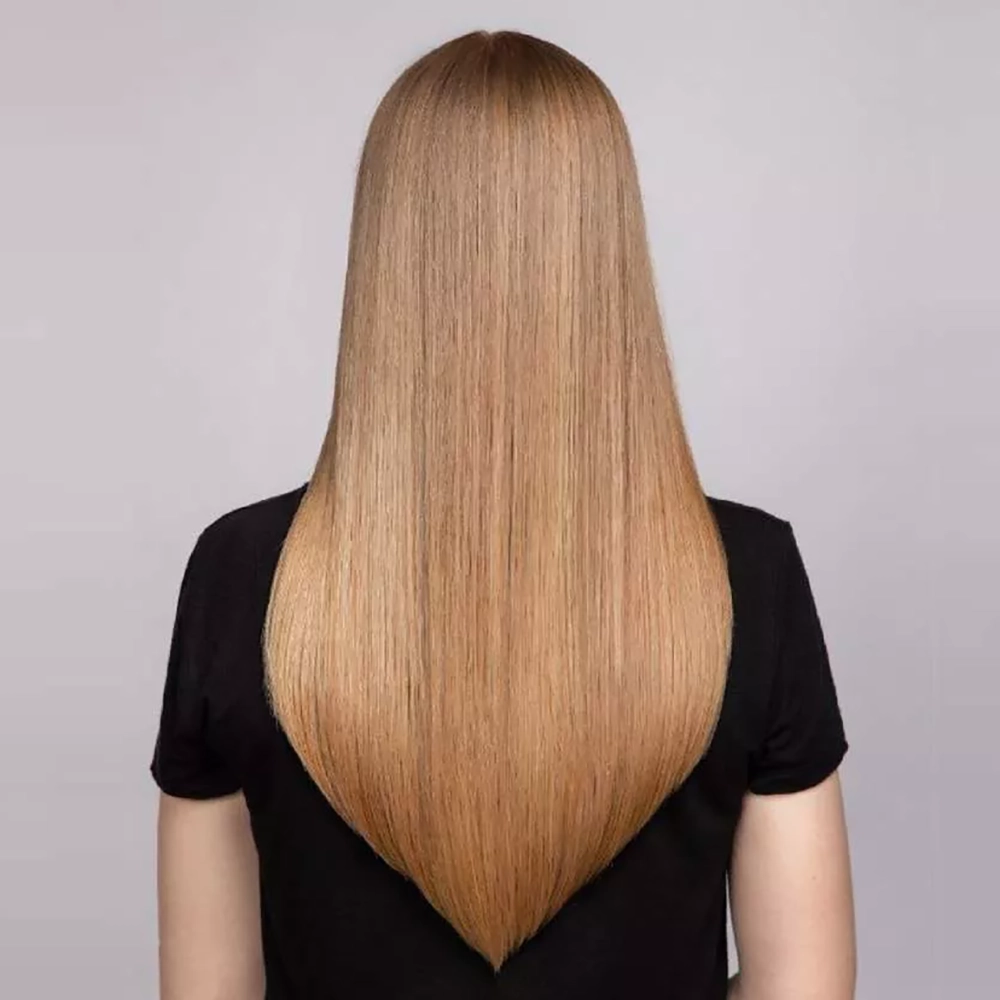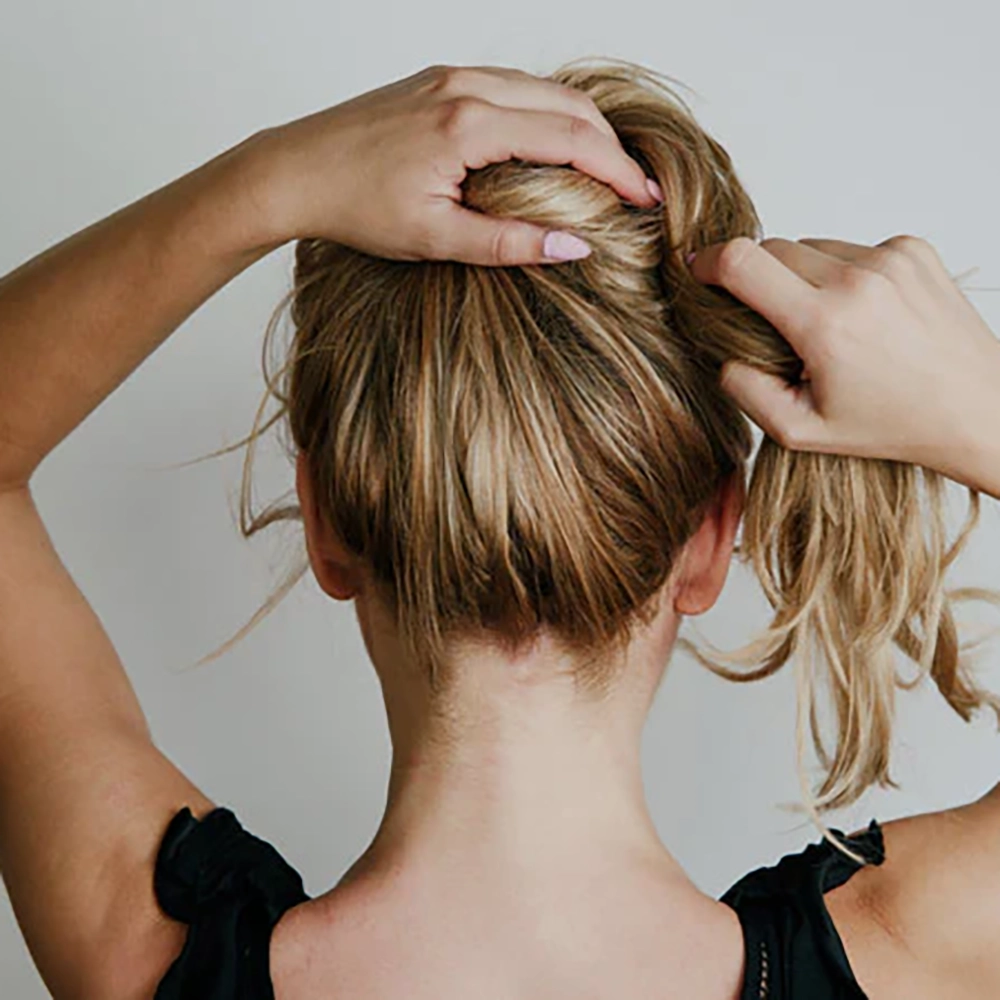What is hard water?
Hard water is a term commonly used to describe water that has high mineral content, particularly high levels of calcium and magnesium ions. These minerals are naturally present in the earth and can easily dissolve in groundwater as it percolates through rocks and soil. The result is water that contains significant amounts of minerals, giving it a distinct taste and often causing various issues when used in daily activities such as cleaning, bathing, or even in the maintenance of household appliances.
Hard water, as the name suggests, can be “hard” on many aspects of our daily lives. When hard water comes into contact with our hair, it can have some noticeable effects. Hard water has the tendency to leave behind a residue on hair, known as buildup, which can lead to dullness and lack of shine. Additionally, the high mineral content in hard water can make it difficult for shampoo and conditioner to properly lather and cleanse the hair, resulting in product buildup and potentially contributing to dryness and frizz.
To better understand the impact of hard water on hair, let’s take a closer look at the specific effects it can have. One of the most common problems experienced by individuals with hard water is dryness. The minerals in hard water can strip the hair of its natural oils and moisture, leaving it feeling dry and brittle. This can lead to increased frizz and difficulty in managing the hair, ultimately impacting its overall appearance and health.
- Effects of hard water on hair:
- Dullness and lack of shine due to mineral buildup
- Dryness and increased frizz caused by the removal of natural oils
In addition to dryness and frizz, hard water can also contribute to hair breakage and damage. The mineral buildup can weaken the hair shaft, making it more prone to breakage and split ends. Furthermore, the minerals in hard water can interfere with the effectiveness of certain hair care products, such as conditioning treatments and leave-in products, reducing their ability to nourish and protect the hair.
| Common effects of hard water on hair: |
|---|
| Hair breakage and split ends |
| Reduced effectiveness of hair care products |
To prevent and minimize the damage caused by hard water, it is essential to establish a proper hair care routine. This routine should include regular clarifying treatments to remove mineral buildup, as well as the use of hydrating and nourishing hair products designed specifically for hard water areas. Additionally, using a water softener or installing a shower filter can help reduce the mineral content in the water, improving the overall health and appearance of the hair.
In conclusion, hard water can have a significant impact on the health and appearance of our hair. Understanding the effects of hard water and implementing appropriate measures to prevent and minimize damage is crucial for maintaining beautiful and healthy hair, even in areas with high mineral content in the water.
Effects of hard water on hair
Hard water is a common problem that many people face when it comes to their hair. It occurs when there is a high concentration of minerals, such as calcium and magnesium, in the water. While hard water may not be harmful to your overall health, it can have several negative effects on your hair.
One of the primary effects of hard water on hair is the buildup of minerals. The minerals present in hard water can accumulate on the scalp and hair shafts over time, creating a layer of residue. This buildup can make your hair look dull and lifeless, as well as cause it to feel heavy and weighed down. Additionally, the minerals can interfere with the effectiveness of shampoos and conditioners, making it difficult to properly cleanse and condition your hair.
Another effect of hard water on hair is increased dryness and frizz. The minerals in hard water can strip away the natural oils from your hair, leaving it dry and prone to frizz. This can make your hair more difficult to manage and style, as well as contribute to breakage and split ends. The lack of moisture also makes it harder for your hair to retain its natural shine, resulting in a dull and lackluster appearance.
Furthermore, hard water can weaken the hair strands and lead to breakage and damage. The minerals in hard water can cause the hair cuticles to become rough and raised, making them more susceptible to damage and breakage. This can result in hair that appears thin and brittle, as well as increased hair fall. Over time, the constant exposure to hard water can significantly impact the overall health and vitality of your hair.
In order to prevent and minimize the damage caused by hard water, there are several measures you can take. Using a clarifying shampoo once a week can help to remove mineral buildup from your hair. Additionally, incorporating a water softener or installing a shower filter can help to remove the minerals from the water before it comes into contact with your hair. It is also important to regularly moisturize and hydrate your hair, using products specifically designed for dry and damaged hair.
In conclusion, the effects of hard water on hair can be quite detrimental. From buildup and dullness to dryness and breakage, hard water can have a significant impact on the health and appearance of your hair. By taking the necessary precautions and implementing a proper hair care routine, you can minimize the damage caused by hard water and ensure that your hair remains healthy and vibrant.
Dryness and frizz: The impact of hard water
Hard water is a common issue that affects many households. It contains high levels of minerals such as calcium and magnesium, which can have negative effects on various aspects of our daily lives. One area that is particularly impacted by hard water is our hair. In this blog post, we will explore the impact of hard water on hair, specifically focusing on dryness and frizz.
When washing your hair with hard water, the minerals present in the water can leave behind a residue. This residue can often make your hair feel dry and rough to the touch. The minerals in hard water can also strip your hair of its natural oils, leading to further dryness. Additionally, the minerals can create a barrier on your hair strands, making it difficult for moisture to penetrate and hydrate your hair properly.
The presence of hard water can also contribute to increased frizz in your hair. The minerals and residue left behind by hard water can make your hair more prone to frizz by creating a rough surface. This rough surface can cause the hair strands to become tangled and result in unwanted frizz. Furthermore, as hard water can strip your hair of its natural oils, your hair may try to compensate for the dryness by producing excess sebum, which can exacerbate frizz.
To combat the impact of hard water on dryness and frizz, there are a few measures you can take. Firstly, installing a water softener or using a shower filter can help remove the minerals from the water, reducing the damage to your hair. Using a clarifying shampoo regularly can also help remove any build-up and residue caused by hard water. Additionally, deep conditioning treatments and leave-in conditioners can provide much-needed hydration to dry and frizzy hair.
In conclusion, the impact of hard water on hair can result in dryness and frizz. The minerals and residue left behind by hard water can strip your hair of its natural oils, leading to dryness, while also creating a rough surface that contributes to frizz. However, by implementing the right hair care routine and using the appropriate products, you can minimize the effects of hard water on your hair and maintain healthy, moisturized, and frizz-free locks.
Build-up and dullness: Hard water’s effect on hair
One of the effects of hard water on hair is the build-up and dullness it can cause. Hard water contains high levels of minerals like calcium and magnesium, which can accumulate on the hair shafts over time. This build-up creates a barrier that prevents moisture from penetrating the hair, resulting in dryness and lackluster appearance.
When hard water comes into contact with shampoos and conditioners, it can also lead to a residue build-up on the hair. This residue can make the hair feel sticky or greasy, even after washing. Additionally, the minerals in hard water can interact with styling products, leaving a dull film on the hair.
To combat build-up and dullness caused by hard water, it’s important to use clarifying shampoos regularly. These shampoos contain ingredients that effectively remove mineral deposits and product build-up from the hair. It’s also advisable to use a chelating shampoo occasionally, as it can specifically target and remove mineral build-up.
Hair breakage and damage caused by hard water
Hard water is a common household problem that can have negative effects on various aspects of our daily lives. One area where the impact of hard water is often felt but not talked about as much is hair health. Hard water contains high levels of minerals such as calcium and magnesium, which can lead to hair breakage and damage over time.
When we wash our hair with hard water, these minerals can build up on the hair shafts, creating a layer of residue that makes it difficult for hair care products to penetrate and moisturize the strands. As a result, the hair becomes dry, brittle, and more prone to breakage. Additionally, the minerals in hard water can alter the pH balance of the scalp, leading to scalp irritation and further weakening of the hair.
To further exacerbate the issue, hard water can also strip the natural oils from our hair, leaving it more vulnerable to damage. The harsh minerals in hard water can cause the hair cuticles to lift and roughen, making the hair appear dull, frizzy, and lacking in shine. Over time, this can lead to increased hair breakage, split ends, and overall hair damage.
To prevent hair breakage and damage caused by hard water, it is important to take certain measures. One approach is to invest in a water softening system or use a shower filter that removes the minerals from the water. These filters can help reduce the negative impact of hard water on hair and overall hair health. Additionally, using clarifying shampoos and deep conditioning treatments can help remove any mineral buildup and restore moisture to the hair.
Creating a hair care routine specifically tailored to combat the effects of hard water is crucial. This may include using leave-in conditioners, hair masks, and serums that provide extra hydration and protection to the hair. Avoiding excessive heat styling and minimizing the use of harsh hair products can also help prevent further damage.
List of Tips to Minimize Hair Breakage and Damage from Hard Water:
- Invest in a shower filter: Using a shower filter can help remove the minerals and impurities from hard water, reducing the potential damage to your hair.
- Use clarifying shampoos: These shampoos are specially formulated to remove mineral buildup and restore the natural balance of your hair.
- Deep condition regularly: Deep conditioning treatments can help restore moisture and strengthen the hair.
- Avoid excessive heat styling: Heat can weaken the hair and make it more susceptible to breakage, so minimize the use of hot tools like flat irons and curling irons.
- Opt for gentle hair products: Harsh chemicals in hair products can further strip the hair of moisture, so choose products that are designed for dry or damaged hair.
Table: Effects of Hard Water on Hair
| Effect | Description |
|---|---|
| Dryness | Hard water can strip the natural oils from the hair, leaving it dry and more prone to breakage. |
| Frizz | The minerals in hard water can roughen the hair cuticles, resulting in frizz and a lack of shine. |
| Breakage | The buildup of minerals on the hair shafts can weaken the hair, leading to increased breakage and split ends. |
| Dullness | Hard water can make the hair appear dull and lifeless due to mineral deposits on the strands. |
Preventing and minimizing hard water damage
Hard water is a common issue that many people face, especially those who live in areas with high mineral content in their water supply. The minerals present in hard water, such as calcium and magnesium, can have a detrimental effect on your hair. They can cause dryness, frizz, build-up, and even hair breakage and damage. However, there are several steps you can take to prevent and minimize the damage caused by hard water.
One of the most effective ways to prevent hard water damage is to install a water softener in your home. A water softener works by removing the minerals from the water, leaving it soft and gentle on your hair. This not only helps to prevent dryness and frizz, but also reduces build-up and dullness. Investing in a water softener can make a significant difference in the health and appearance of your hair.
In addition to using a water softener, there are other measures you can take to minimize hard water damage. The first step is to choose the right hair care products. Look for shampoos and conditioners that are specifically formulated for hard water. These products are designed to combat the effects of hard water by removing build-up and restoring moisture to the hair. Using a clarifying shampoo once a week can also help to remove any residual build-up and keep your hair looking clean and shiny.
- Choose a water softener for your home
- Use hair care products formulated for hard water
- Incorporate a clarifying shampoo into your routine
- Avoid overwashing your hair
- Protect your hair from the elements
- Stay hydrated and eat a balanced diet
Another important step in preventing hard water damage is to avoid overwashing your hair. Washing your hair too frequently can strip away its natural oils, leading to dryness and damage. Try to wash your hair no more than two to three times a week, and consider using dry shampoo in between washes to refresh your hair without the need for water.
Protecting your hair from the elements is also crucial in minimizing hard water damage. UV rays, pollution, and harsh weather conditions can all contribute to dryness and frizz. Using a hat, scarf, or sunscreen spray can help to shield your hair from these damaging factors. Additionally, it is important to stay hydrated and maintain a balanced diet to promote overall hair health.
Hair care routine for hard water areas
Hard water can be a real nuisance, especially when it comes to hair care. The high mineral content in hard water can cause numerous problems for your hair, including dryness, frizz, build-up, and even breakage. If you live in an area with hard water, it’s important to adjust your hair care routine to minimize the damage. In this blog post, we will explore some effective hair care tips specifically for hard water areas.
First and foremost, it is crucial to invest in a good quality water filter or a showerhead with built-in filtration system. This will help to remove the excess minerals and impurities from the water, making it much gentler on your hair. Additionally, using a clarifying shampoo once a week can help to remove any build-up caused by hard water.
Another important step in your hair care routine for hard water areas is to use a moisturizing conditioner after every wash. Hard water tends to strip away the natural oils from your hair, leading to dryness and frizz. A rich and nourishing conditioner will help to restore moisture and improve the overall texture of your hair.
In addition to using a conditioner, incorporating a leave-in conditioner or a hair mask into your routine can provide extra hydration and protection. Look for products that are specifically formulated to combat the effects of hard water. These products typically contain ingredients like coconut oil, shea butter, or argan oil, which can help to soften and hydrate your hair.




































